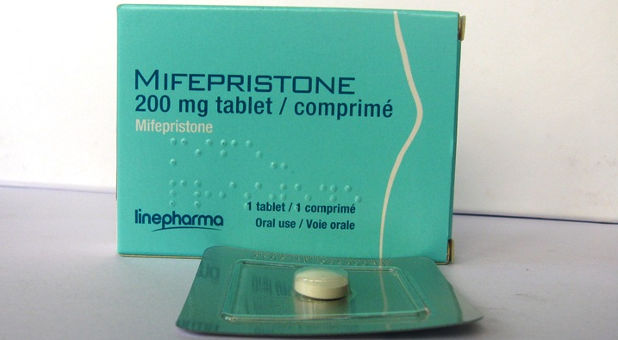In recent months, the Population Research Institute (PRI) has documented, with significant amounts of evidence, the activities of three major abortion networks: FIGO, CLACAI, and FP2030. Each of these has played a specific role in the international expansion of abortion.
Now, we have turned our attention to another key player: DKT International.
Founded in 1989, this organization presents itself as a promoter of “sexual and reproductive health,” but in reality, it has become the world’s largest distributor of abortion pills, using sophisticated social marketing networks specifically designed to evade pharmaceutical regulations.
HELP LIFENEWS SAVE BABIES FROM ABORTION! Please help LifeNews.com with a donation!
On September 2, 2025, DKT announced that it would double its commitment to Family Planning 2030 (FP2030), pledging a total of $2 billion by 2030.
This announcement not only revealed DKT’s financial power, but also its intent to fill the void left by the Trump Administration, which, under the Mexico City Policy, prohibited the use of U.S. federal funds to finance organizations that promote or perform abortions.
DKT’s press release hinted at a carefully crafted strategy:
- Shielding the FP2030 network to ensure abortion remains an essential component disguised as “family planning.”
- Replacing traditional donors, from government agencies to private foundations, that have reduced their political exposure in this area.
- Expanding aggressively into emerging markets, particularly in Africa and Latin America, where cultural and legal resistance to abortion remains strong.
In short, this $2 billion pledge is not philanthropy, it is an investment to sustain and scale abortion by pills on a global level.
A “Glocal” Network: Global Thinking, Local Execution
What makes DKT unique is its operational model.
Unlike traditional pharmaceutical companies, DKT combines multinational logistics with localized social marketing.
This means youth-focused campaigns, parallel distribution networks, and covert sales of dangerous abortifacients, such as misoprostol and mifepristone.
Under deceptive labels like “safe options” or “reproductive rights,” DKT promotes self-managed home abortions, even in countries where abortion is illegal.
The consequences are severe:
- Erosion of national sovereignty: National health frameworks become subordinate to foreign agendas.
- Normalization of illegality: The line between clinical and clandestine abortion blurs.
- Overburdened healthcare systems: Local hospitals are forced to treat post-abortion complications without additional resources.
- Manipulation of public opinion: The language of “reproductive health” weakens cultural resistance to abortion.
The Peru Case: A Look Inside the Machinery
Peru provides a concrete example.
There, DKT operates as DKT Perú S.A.C., registered as a pharmaceutical company in Lima with authorization from the General Directorate of Medicines, Supplies, and Drugs (DIGEMID), Peru’s equivalent of the U.S. FDA.
Under this license, it imports misoprostol from India, manufactured by Naari Pharma, a strategic partner that has also obtained health registrations for misoprostol in Colombia and Ecuador.
Although abortion in Peru is illegal except when the mother’s life is at risk, investigations show that these products often end up in clandestine networks, facilitating self-managed abortions.
The strategy is the same everywhere: register the products, import them legally, and then promote them as part of a “rights package,” regardless of national law.
Yet Peru also stands as a symbol of pro-life resistance.
Through the Ibero-America Office of the Population Research Institute, support is being given to the Padres Peruanos (Peruvian Parents) citizen platform, which is running a signature campaign demanding that DIGEMID conduct a thorough audit of DKT Perú’s imports and sales.
Peruvians understand the urgency of stopping the spread of abortion pills and defending the life and health of women and their unborn children.
A Direct Challenge to the Trump Administration’s Funding Restrictions
DKT International is no minor actor, it is the global giant of chemical abortion.
With operations in more than 100 countries, strategic alliances in India, and a narrative that presents abortion as a supposed “right,” this network seeks to impose a model in which the cultural and legal objections of nations are subordinated to the abortion industry.
Far from being deterred by U.S. funding restrictions, DKT has chosen to circumvent them through private commitments and a dense international financing network.
Its decision to invest $2 billion in FP2030 is a direct and defiant message: the abortion machinery has no intention of stopping.
Our response must be even stronger and more resolute.
It is essential to support the Trump Administration, which not only reinstated the Mexico City Policy but expanded it, ensuring that American taxpayers’ money will not, directly or indirectly, fund organizations that promote or perform abortions.
It is our duty to expose and resist this agenda, and to defend, with conviction, that the resources of U.S. citizens must never sustain a network seeking to expand abortion under the guise of “reproductive health.”
LifeNews Note: Carlos Polo is the Director of PRI Iberoamerica. This appeared at The Population Research Institute and reposted with permission.











